Pneumatic function test for Rotary Ring
Sommaire
Étape 1 - Lubrication
All lubrication points should be greased
2 pumps of grease to be added to each linear bearing
24 off bearings in total
4 off bearings per double slide base
2 off bearings per single slide base
Étape 2 - Connect air feed
Compressed air feed needs connecting to main 6mm blue feed pipe to ring.
Use adapter to enable safe connection via PCL coupling and probe
Étape 3 - Check for air leaks
When air is connect to rotary ring, attention should be paid to any audible air leaks. If any are present, identify source and rectify
Étape 4 - Home positions
1 When air is connected, all cylinders should be in a contracted state. This is their home position
Étape 5 - Home position correction
If correct practice has been followed, only the double slide cylinder will have the possibility of being at the incorrect home position . This is easily rectified
1 Image shows incorrect position when air has been connected to mains supply
2 To rectify, disconnect mains air feed and swap the two indicated pipes at the stem elbows
3 Reconnect air and confirm correct home position is now achieved
Étape 6 - Manual valve activation
Valves can be activated manually by the control button. When pressed, the valve will fire the associated cylinder to its active position .
1 Manual valve activation button
Étape 7 - Test single slide bases
4 off
Check that when valve is activated, spindle assembly goes to the position shown. Fire valve a few times to check movement is consistent. Cylinder speeds and cushioning will be set at a later point
Étape 8 - Test double slide bases
4 off
Check that when valve is activated, spindle assembly goes to the position shown. Fire valve a few times to check movement is consistent. Cylinder speeds and cushioning will be set at a later point
1 Single stage cylinder activated by lower valve , see image for details
2 Double stage cylinder activated by upper valve , see image for details
Étape 9 - Disconnect air
Once pneumatic testing is complete disconnect the air supply
Draft

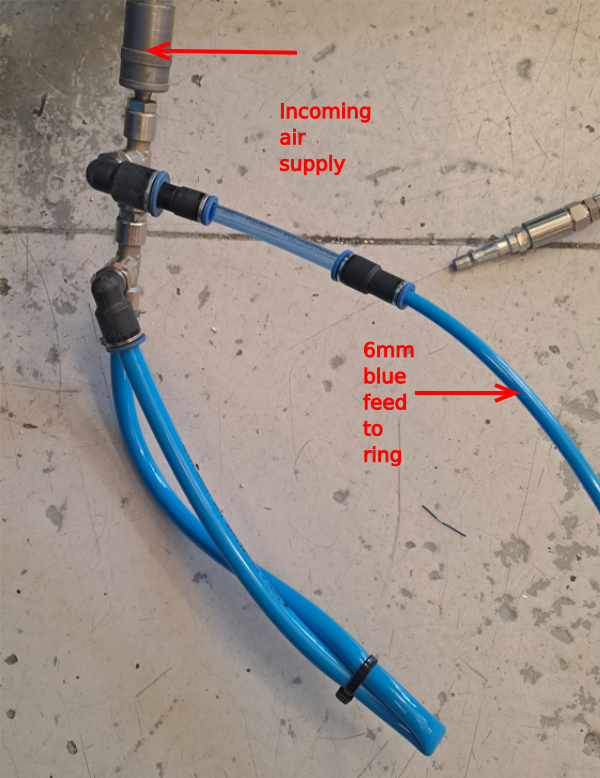
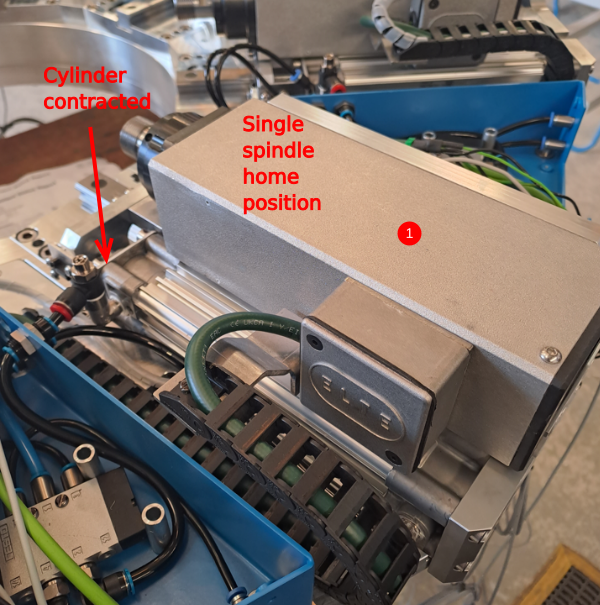
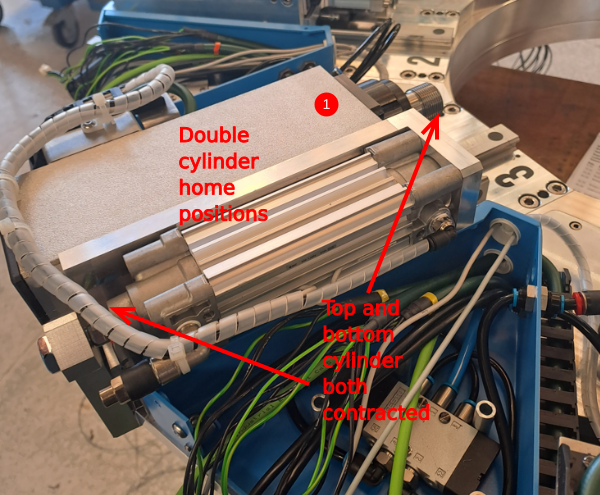
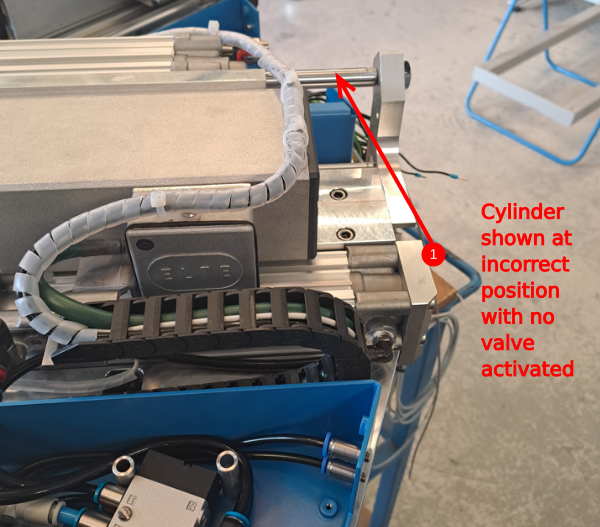
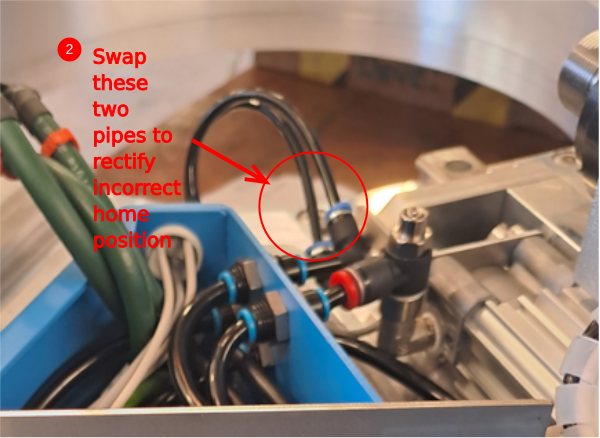
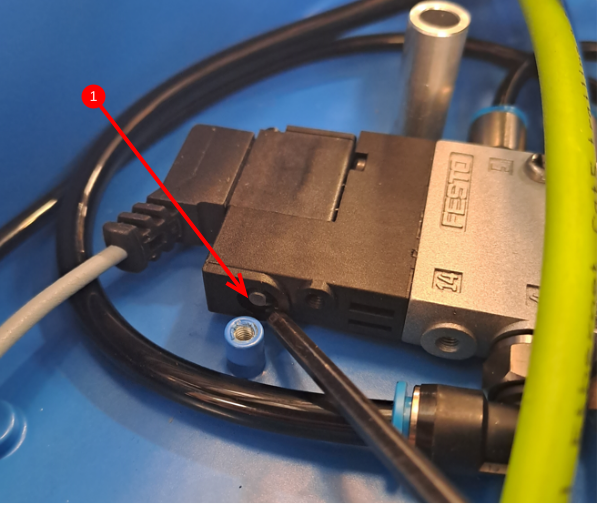
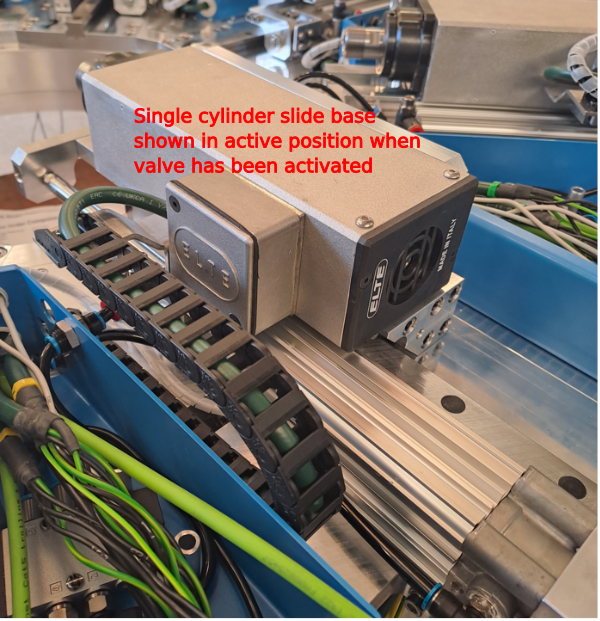
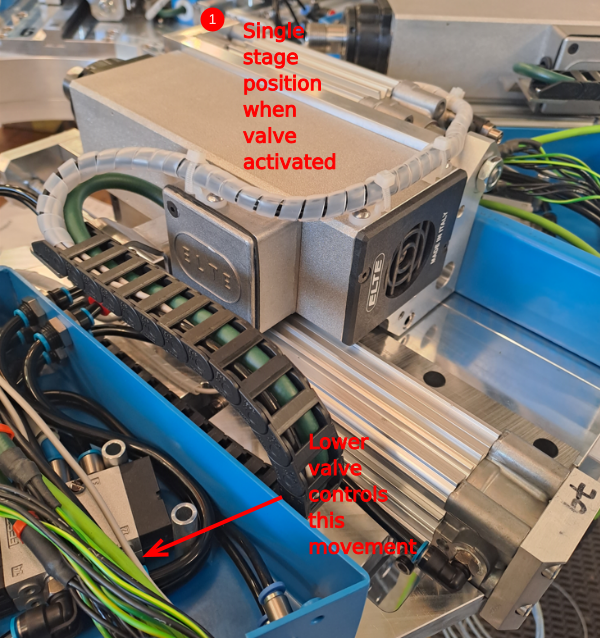
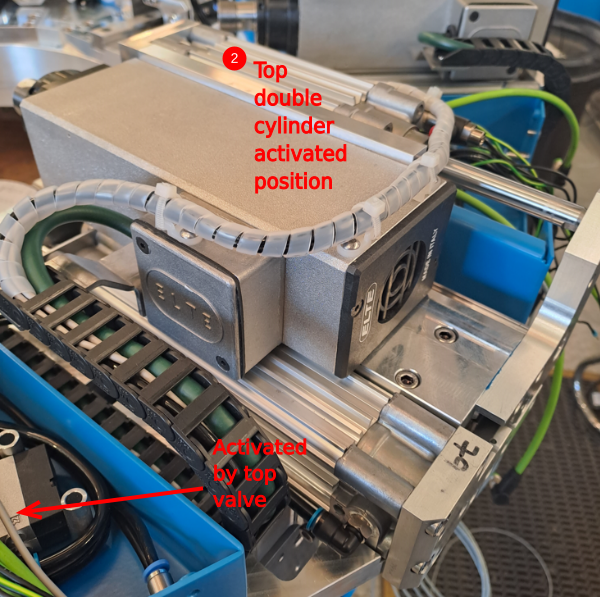
 Français
Français English
English Deutsch
Deutsch Español
Español Italiano
Italiano Português
Português